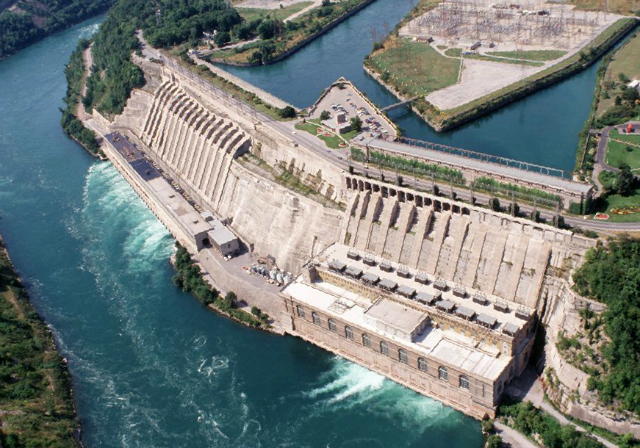Newly elected Ontario Premier Doug Ford did his best impression of strongman Donald Trump July 11 by forcing CEO Mayo Schmidt and the entire board of Hydro One Ltd. (TSX:H) to step down.
Rule #1 in politics: make a politically-charged promise to voters that’s bound to capture the attention of a certain element of the population and then follow through on that promise.
In April, while running for premier, Ford promised to get rid of Schmidt and the rest of the board if elected, calling Schmidt “Kathleen Wynne’s $6-million dollar man” and suggesting the chief executive was pulling the wool over Ontarians by personally enriching himself at the taxpayers’ expense.
When Ford announced the news that Schmidt and the board were stepping down, he bragged the payout wouldn’t cost a penny — a Trump exaggeration if there ever were one — when Schmidt will actually benefit to the tune of $10.7 million.
While this might be a good sound bite for Ford, it does immeasurable damage to Hydro One’s reputation, leading investors to wonder if the damage is permanent.
Here are what I consider the pros and cons of owning Hydro One stock at this moment in time.
The pros
If you believe, as Ford did, that Mayo Schmidt was overpaid at $6.2 million a year, then the CEOs ouster is the beginning of a new chapter in the utility’s brief history as a public company.
As Fool contributor Ambrose O’Callaghan stated in April, Hydro One is a good long-term hold with a “rock-solid dividend and wide moat” that most income investors would want in their portfolio.
In June 2016, I suggested that Hydro One’s dividend would grow by 5%-10% a year through 2021, possibly reaching $1.35 at the end of the five-year period. Trading at $26 in 2016, it’s dropped to below $20 at the time of writing. At today’s prices and a $1.35 dividend, you’re talking about a 7.0% yield on a forward basis.
With a 33% increase in its first-quarter profit and the Avista acquisition that was announced in 2017 and is expected to be completed in 2018, adding more than 700,000 customers for the utility in the U.S. Northwest, Hydro One has a lot of positives moving forward despite losing the architect its growth strategy.
Political mudslinging aside, the Ontario government still owns 47% of Hydro One. With serious deficit issues, the last thing Doug Ford wants to do is choke off Hydro One’s dividend.
The cons
I’ve never been a fan of excessive CEO pay, so I get why many in Ontario were irked by the former CEO’s pay package, but the truth is, Schmidt’s pay wasn’t that bad.
“If you actually compare it to what other board members and CEOs make at Canadian publicly-traded regulated utilities,” Darryl McCoubrey, vice president of utilities and infrastructure at Veritas Investment Research, said in a July 12 BNN Bloomberg interview. “Hydro One’s compensation for its CEO of just over $6 million would be right in the middle of the range.”
The whole point of privatizing Hydro One was to generate capital for the Ontario government while being able to benefit from its growth. Stifling that growth by scaring away quality executives who know how to operate in a regulated business environment is only going to hurt its own investment in the utility.
Furthermore, in January, the province sold 14.4 million of its Hydro One shares to 129 First Nations in Ontario for $260 million, the entire amount funded by a low-interest loan from the Ontario government.
If you’re willing to loan $260 million to the First Nations, why would you have a problem with paying an executive the going rate?
If Hydro One can’t recruit someone capable of growing a multi-billion dollar business, the long-term growth of the utility could be seriously at risk, hurting the very people the Ontario government’s trying to help.
The bottom line on Hydro One stock
Hydro One will continue to face volatility until it gets a new board, hires a CEO, and Doug Ford reveals his government’s intentions for Hydro One in the future.
Once those are settled, investors will pile back in. I’d buy now and on any further weakness ahead of the resolution of all three of these issues.
For me, the pros outweigh the cons.







